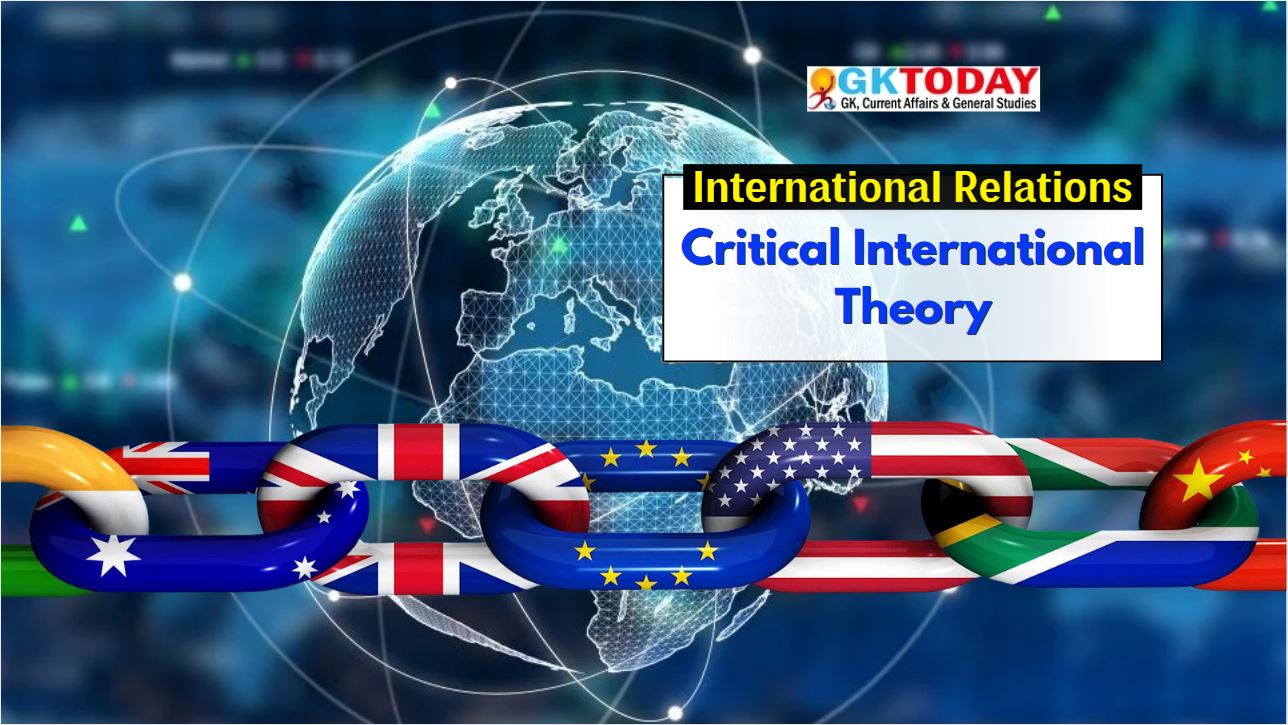UGC-NTA NET Political Science – Critical International Theory
Critical International Theory (CIT) offers a transformative lens through which to analyse International Relations (IR). It challenges traditional paradigms by questioning established assumptions and power structures. CIT focuses on social constructs, historical contexts, and ideological influences that shape global interactions. This theory emerged as a response to conventional frameworks like Realism and Liberalism, aiming to highlight the importance of ethics and justice in international affairs.
Definition
Critical International Theory critiques traditional theories of International Relations. It challenges the objective and value-free stance of positivism. CIT posits that knowledge is socially constructed and shaped by power dynamics. This approach emphasises the need to consider marginalised perspectives and ethical dimensions in global politics.
Key Features
- Critique of Positivism: CIT rejects the idea that knowledge can be objective and value-free. It argues that all knowledge is influenced by social and historical contexts.
- Focus on Power Dynamics: This theory marks how power relations shape global politics. It seeks to amplify the voices of those who are often ignored.
- Emphasis on Normative Dimensions: CIT advocates for ethical considerations in IR, stressing the importance of justice and human rights.
- Interdisciplinary Approach: It draws insights from sociology, philosophy, and critical theory, creating a rich analytical framework.
Historical Context
CIT emerged in the late 20th century, responding to the limitations of traditional IR theories. Influences include the Frankfurt School, post-structuralism, and post-colonialism. These movements contributed to a broader understanding of how historical and social factors inform international relations.
Key Theorists
- Robert Cox: Introduced the idea of the “production of world order,” denoting the role of social forces in shaping global politics.
- Andrew Linklater: Focused on global justice and the ethical dimensions of international relations.
- Jürgen Habermas: Contributed to discussions on communicative action and the public sphere, essential for understanding global discourse.
Major Concepts
CIT encompasses several concepts:
- World Order: Investigates how global structures and institutions are created and sustained.
- Emancipation: Refers to liberating individuals and groups from oppressive systems.
- Hegemony: Analyses how dominant ideologies maintain control over global narratives.
- Globalization: Critically examines the effects of globalization on local cultures and economies.
Methodological Approaches
CIT employs various methodologies to analyse international relations:
- Critical Discourse Analysis: Investigates language and communication to reveal underlying power relations.
- Historical Materialism: Examines how material conditions and economic factors influence global politics.
- Case Studies: Utilises specific historical and contemporary examples to illustrate critical perspectives.
Critiques of Critical International Theory
Despite its contributions, CIT faces several critiques:
- Lack of Practical Solutions: Critics argue that CIT often critiques without offering actionable solutions.
- Overemphasis on Ideology: Some scholars believe CIT may neglect material factors in international relations.
- Complexity and Ambiguity: The theoretical framework can be perceived as overly complex, making empirical application challenging.
Key Debates
CIT engages in several key debates within the field of International Relations:
- The Role of the State vs. Non-State Actors: Examines how both entities shape international relations.
- Universalism vs. Particularism: Discusses the tension between global ethical standards and local values.
- Globalization and National Sovereignty: Investigates how globalization impacts local identities and state power.
Application
CIT finds application in various areas:
- Policy Analysis: Used to evaluate the implications of policies on marginalized groups.
- Advocacy: Supports movements for social justice and human rights.
- Critique of International Institutions: Offers critical perspectives on the functioning of global organisations.


